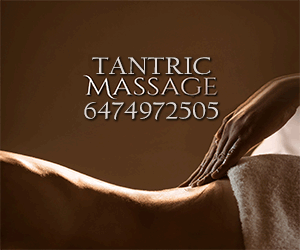I figure, that before, this forum gets bogged down with desparate folk who have be told they need surgery for their low back/disk problem, I'd just swoop in & offer my humble opinion.
Before I drag my soap box out, I feel it only fair to point out that I am an osteopath, amongst other things and that my view, like anyone one's, is open to bias. Also, I would
like to say that I work both privately and for the NHS.
1 - It is relatively rare that a disk injury (even a full prolapse) requires surgery.
2 - Over 90% of us will have a disk injury before we expire, which means you are actually abnormal if you don't get one. It's just that in some people they cause a lot more problems/pain than in others.
3 - A disk prolapse can be a serious condition & aught to be checked out by an appropriate primary health care practioner. Signs of when it is an emergency - see below.
4 - Surgery may actually make matters worse in the short & long term & there's is a distinct lack of research on this matter. I welcome any if you can find any, also I am happy for you if you've undergone surgery for this problem & it has resolved the matter.
5 - You may find that a 'private' consultant is more keen to operate than an NHS one. It's a complex issue, including insurance, fees, cost & necessesity, but do ask yourself why.
Hospital is indicated if any of the following are present:-
Large areas of numbness in the leg/s and especially around the anus and genitalia.
Incontinence of bladder/bowel.
Inability to urinate/defecate - that is not solely due to pain of ‘forcing’ or constipation, such as, from taking pain-killers/anti-inflammatories.
Loss of power in the leg/s - that is not solely due to pain. This may present as 'foot drop' where you are having to drag your foot because you're unable to flex the ankle.
Address for article on low back problems in general -
http://fp.osteopath.plus.com/articles/advice_4_back_pain.htm
Will get back to you when I've thrown together more info on the nature of disk & other low back problems, but you'll find more info on this issue on my vital-osteopathy web site.
Before I go - I will say that typically - disk prolapses & herniations give more pain in the leg than in than in the lumbar spine itself. Disks, themselves, have little or no pain sensory nerves. Also, the degree of pain experienced bears little or no relation to the seriousness of the condition. The truth is that the more minor low back problems seem to cause a great deal more pain locally.
Other than in the exceptional cases noted above - I would suggest you get to see your local osteopath, but then, as I say I am not without bias. Like anything some are better than others, but at least you can rest assured that since regulation came in by the General Osteopathic Council - they will, at the very least, be safe. Osteopaths are now recognised as Primary Care Practitioners, which puts them on a par with GP's - the difference being is that osteopaths actively treat people with these sort of problems every day and don't just treat the symptoms.
Do bear in mind that if it is a severe disk injury, even with treatment it may take a few months to settle down. Although pain killers/anti-inflammatories are not without their side effects, they may mean that you can get some sleep. Natural alternatives - we'll do another day.
Whatever else you do (if you don't have any of the serious symptoms noted above) - Keep moving as best you can. Movement will help clear the inflammation, which is the major case of pain.
It took a long time for them to get there, but western medicine has finally recognised that bed rest is the last thing you do. Unfortunately some GP's still haven't caught up on that one.
Before I drag my soap box out, I feel it only fair to point out that I am an osteopath, amongst other things and that my view, like anyone one's, is open to bias. Also, I would
like to say that I work both privately and for the NHS.
1 - It is relatively rare that a disk injury (even a full prolapse) requires surgery.
2 - Over 90% of us will have a disk injury before we expire, which means you are actually abnormal if you don't get one. It's just that in some people they cause a lot more problems/pain than in others.
3 - A disk prolapse can be a serious condition & aught to be checked out by an appropriate primary health care practioner. Signs of when it is an emergency - see below.
4 - Surgery may actually make matters worse in the short & long term & there's is a distinct lack of research on this matter. I welcome any if you can find any, also I am happy for you if you've undergone surgery for this problem & it has resolved the matter.
5 - You may find that a 'private' consultant is more keen to operate than an NHS one. It's a complex issue, including insurance, fees, cost & necessesity, but do ask yourself why.
Hospital is indicated if any of the following are present:-
Large areas of numbness in the leg/s and especially around the anus and genitalia.
Incontinence of bladder/bowel.
Inability to urinate/defecate - that is not solely due to pain of ‘forcing’ or constipation, such as, from taking pain-killers/anti-inflammatories.
Loss of power in the leg/s - that is not solely due to pain. This may present as 'foot drop' where you are having to drag your foot because you're unable to flex the ankle.
Address for article on low back problems in general -
http://fp.osteopath.plus.com/articles/advice_4_back_pain.htm
Will get back to you when I've thrown together more info on the nature of disk & other low back problems, but you'll find more info on this issue on my vital-osteopathy web site.
Before I go - I will say that typically - disk prolapses & herniations give more pain in the leg than in than in the lumbar spine itself. Disks, themselves, have little or no pain sensory nerves. Also, the degree of pain experienced bears little or no relation to the seriousness of the condition. The truth is that the more minor low back problems seem to cause a great deal more pain locally.
Other than in the exceptional cases noted above - I would suggest you get to see your local osteopath, but then, as I say I am not without bias. Like anything some are better than others, but at least you can rest assured that since regulation came in by the General Osteopathic Council - they will, at the very least, be safe. Osteopaths are now recognised as Primary Care Practitioners, which puts them on a par with GP's - the difference being is that osteopaths actively treat people with these sort of problems every day and don't just treat the symptoms.
Do bear in mind that if it is a severe disk injury, even with treatment it may take a few months to settle down. Although pain killers/anti-inflammatories are not without their side effects, they may mean that you can get some sleep. Natural alternatives - we'll do another day.
Whatever else you do (if you don't have any of the serious symptoms noted above) - Keep moving as best you can. Movement will help clear the inflammation, which is the major case of pain.
It took a long time for them to get there, but western medicine has finally recognised that bed rest is the last thing you do. Unfortunately some GP's still haven't caught up on that one.
































































































 ]
]



